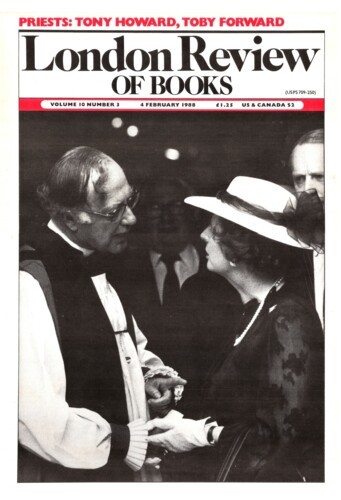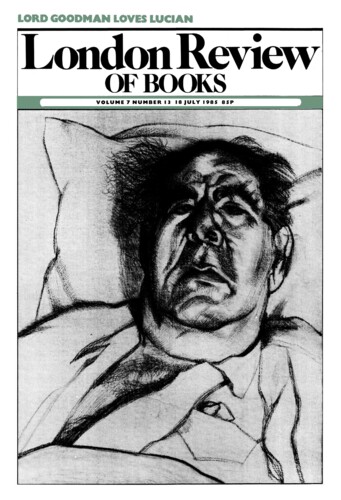‘I’, declares a mysterious character in one of the short sketches that makes up this collection of fugitive pieces, ‘am a Traveller in Romance.’ It does not seem an apt title for Somerset Maugham, for apart from a passing whim to end his days at Angkor Wat, he strikes one as very little tinged with romance. He describes himself as ‘more inclined to look forward than to look back’, as having ‘always lived so much in the future’, and there was nothing romantic in the way he went about his writing. Rather than the pregnant sigh and the scent of roses there are the busy sounds of the saw and the hammer, the smell of boiling fish glue. In the course of these pieces the work of Dorothy Parker is discussed, the letters of Madame de Sévigné, the personalities of Marie Tempest, Noel Coward, Eddie Marsh, the Aga Khan; there are pensées on playing bridge, the reasons why the American dislike the English, an account of what it’s like to have one’s portrait painted; there are some unexceptionable short stories and a playlet. There are recurrent themes. We learn that a story must have a beginning, a middle and an end; words must be unpretentious, their meaning clear. ‘Let not your son be afraid of the hackneyed phrase,’ he advises the proud mama of a budding author: ‘it may very well be the most suitable.’ He tends to harp like a schoolmaster on the theme that the necessary end of culture is ‘right living’, that the final test of a work of art is its moral value. We learn, too, that the purpose of all art is to please, and are sternly warned not to be too afraid of pleasure. There are other hobby-horses, such as the pernicious influence of Henry James upon English fiction. James sinned by turning the eyes of the best authors ‘away from the needs, passions and immortal longings of humanity to dwell on the trivial curiosities of sheltered gentlefolk’, on ‘little social problems of no real significance’. Maugham rails against the sad tendency of English fiction over the last fifty years to become insular and provincial: the nadir, one is led to suppose, was reached in the portrayal of the ‘white collar proletariat’ in Lucky Jim. ‘They are scum,’ wrote Maugham. Lucky Jim affronted Maugham’s cosmopolitanism, which in old age he seems rather to have regretted, but which nevertheless coloured his attitude to life. How much it contributed to self-knowledge is debatable, or so one might think in the light of one intriguing anecdote included in this book. It appears that on a visit to Maugham H.G. Wells drew his fingers along the edition of his complete works that he had presented to his fellow author. ‘You know, they’re dead,’ he said. ‘They deal with matters of topical interest and now of course they’re unreadable.’ Maugham considered they were no longer read because Wells had been more concerned with the type than with the individual, the general rather than the particular.
‘I’, declares a mysterious character in one of the short sketches that makes up this collection of fugitive pieces, ‘am a Traveller in Romance.’ It does not seem an apt...


